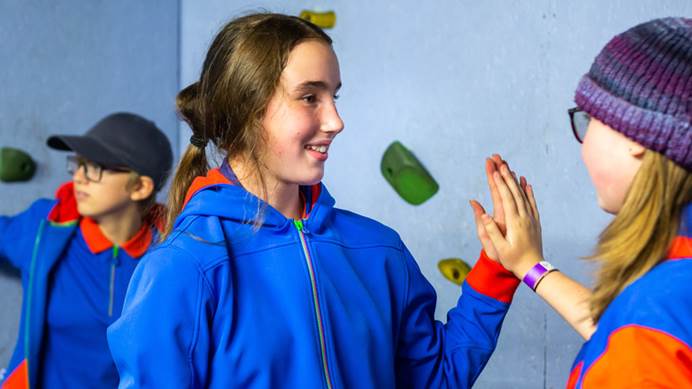Dos and don'ts of handling disclosures
What to do if a girl discloses something concerning to you
What is a disclosure?
A disclosure is when a girl tells you something that has affected her, for example about instances of abuse.
Part of what Girlguiding does is offer girls a safe space to be themselves and say what they think. As a Girlguiding volunteer, the girls in your unit will trust you. Because they feel comfortable and safe, they might discuss things that concern or affect them. This could include concerns involving another member of Girlguiding.
Some things that may be shared with you include self-harm and physical, sexual or emotional abuse, and you may notice signs of neglect. A girl also may have a concern about something that has happened online or through social media.
Discussing these things with girls may be difficult to hear and tough to deal with. Following these dos and don'ts will help you offer them the best support possible.
Do:
- Listen carefully and trust that what's being said is correct.
- Reflect back key phrases of what's been said, to check your understanding.
- Offer immediate support and reassurance.
- Record a factual account of the conversation immediately, using the person’s actual words wherever possible. Sign, date and keep the record safe.
- Share the report with your unit leader immediately and contact your commissioner or the safeguarding team at HQ to report the disclosure.
- Ask open questions to clarify what specifically is being disclosed. And check whether they have any concerns about this being shared so steps can be taken to mitigate any ongoing risks.
Don't:
- Tell the person that you can keep it a secret. Do explain that you may need to pass the information on to keep them, or other people, safe.
- Panic, overreact, be judgmental or make assumptions.
- Investigate, repeatedly question or ask the individual to repeat the disclosure.
- Discuss the disclosure with people who don't need to know.
Further information
While it's possible to spot signs or behavioural changes that may indicate that harm or abuse taking place, it's important to remember that you shouldn't try to ‘diagnose’ abuse based on a checklist approach.
Remember you can report anything that's making you feel concerned without needing to identify the type of abuse or harm that's taking place. You just need to explain what you've seen or heard that's worrying you.
If you'd like further information on what constitutes abuse and harm and the signs and behavioural indicators that indicate abuse or harm may be occurring, please visit the NSPCC website.
Contact the HQ safeguarding team
If you have a concern about a girl or volunteer and need advice or support then contact the HQ safeguarding team. Call us on 020 7834 6242 ext. 3037 or email us below.
For out-of-hours emergencies call 07508 032997 (5pm - 10pm Monday - Friday and 9am - 10pm Saturday and Sunday). Please don't text the out of hours number as we're unable to access these messages.


